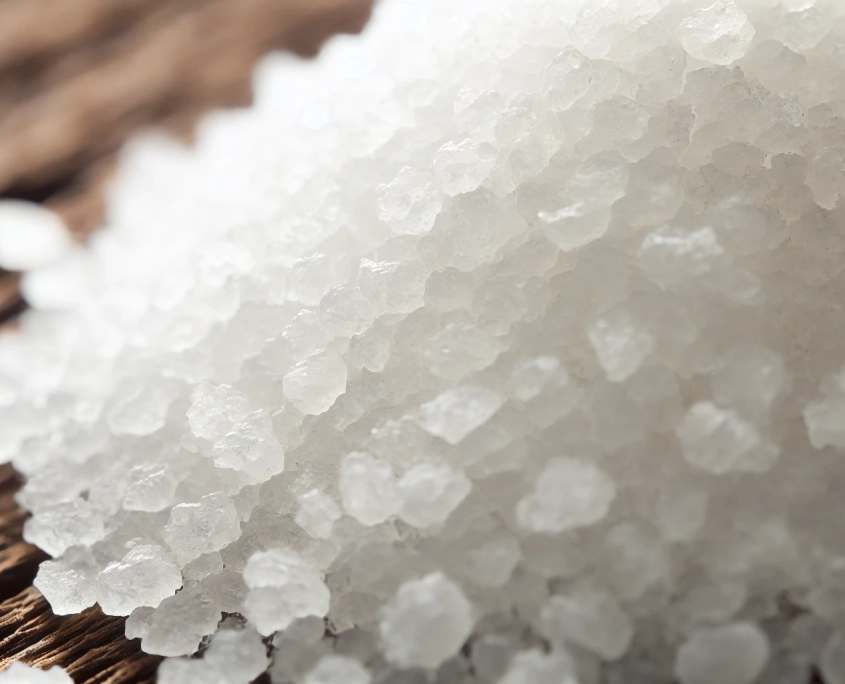The Role of Sodium in Stress Modulation, Hydration, and Metabolic Health: A Reassessment of Dietary Guidelines

Sodium is a vital electrolyte that plays a crucial role in stress regulation, hydration, and metabolic health. However, traditional dietary recommendations have favored sodium restriction due to concerns about its impact on hypertension and cardiovascular disease. Recent evidence suggests that inadequate sodium intake may increase stress hormones, impair hydration, and disrupt metabolic processes. This paper critically examines sodium’s physiological roles, highlights the importance of individualized sodium intake, and proposes a balanced approach to consumption—approximately one teaspoon of high-quality salt per day for most people. Furthermore, we address environmental concerns about contaminated salt and the need for complementary mineral intake.
Introduction
For decades, public health guidelines have advocated for limiting sodium intake to around 2,300 mg per day, often associating high sodium intake with hypertension and cardiovascular risk. However, new insights into sodium physiology challenge this narrative. Sodium plays an essential role in modulating stress responses, supporting hydration, and maintaining metabolic balance. Emerging data suggest that sodium deficiency may trigger elevated levels of stress hormones, disrupt electrolyte balance, and impair insulin sensitivity. This paper reevaluates sodium’s health benefits and explores a practical, individualized approach—recommending approximately one teaspoon of high-quality salt per day for most healthy individuals.
Sodium, Stress Hormone Regulation, and the RAAS
Sodium has significant effects on the body’s stress response by influencing the hypothalamic-pituitary-adrenal (HPA) axis and the renin-angiotensin-aldosterone system (RAAS). Adequate sodium intake can help regulate several key stress hormones:
- Cortisol: Elevated cortisol is linked to chronic stress, inflammation, and metabolic dysfunction. Higher sodium intake has been shown to reduce cortisol levels, promoting a more balanced stress response.
- Adrenaline and Noradrenaline: These catecholamines drive the fight-or-flight response. Research indicates that higher sodium intake reduces these stress hormones, supporting emotional regulation and physiological balance.
- Aldosterone and Angiotensin II: Sodium restriction activates the RAAS, increasing aldosterone and angiotensin II levels. These hormones promote sodium retention and vasoconstriction, potentially leading to hypertension, chronic inflammation, and stress-related disorders.
By preventing excessive activation of the RAAS, a sufficient sodium intake mitigates inflammation and reduces metabolic strain, underscoring its importance for stress management.

The Role of Sodium in Hydration and Fluid Balance
Sodium is essential for hydration, as it facilitates the absorption of water through sodium-glucose symporters in the intestines. This process ensures that sodium, glucose, and water are transported into cells efficiently, maintaining proper hydration and fluid balance. Insufficient sodium impairs water retention and leads to frequent urination, dehydration, and fatigue.
- Nocturnal Urination and Vasopressin Regulation: Sodium influences vasopressin (antidiuretic hormone) secretion, which helps the body retain water during the night. A lack of sodium can cause nocturnal urination and disrupt sleep cycles, further exacerbating fatigue and stress.
- Practical Benefits of Oral Rehydration Solutions (ORS): ORS, which rely on sodium to draw water into cells, are a clinical example of sodium’s role in hydration. This principle applies to everyday hydration, highlighting the need for adequate sodium intake to support physical and cognitive performance.
Metabolic and Cardiovascular Implications of Sodium Intake
Contrary to the prevailing belief that high sodium intake raises blood pressure, emerging evidence suggests that sodium restriction may have unintended metabolic and cardiovascular consequences:
- Insulin Sensitivity: Some research indicates that low-sodium diets reduce insulin sensitivity, potentially increasing the risk of metabolic syndrome.
- Catecholamine Elevation and Vasoconstriction: Low sodium intake often triggers higher levels of adrenaline and noradrenaline, causing vasoconstriction and raising blood pressure. This paradoxical response underscores the need for a nuanced understanding of sodium’s effects on cardiovascular health.
- Inflammation and Chronic Disease: Elevated angiotensin II levels, common in sodium-depleted states, act as potent pro-inflammatory agents. Chronic inflammation plays a significant role in the development of cardiovascular disease, metabolic disorders, and cancer.
These findings emphasize the importance of viewing sodium intake within a broader physiological context, where both deficiency and excess can have distinct health consequences.
How Much Salt is Optimal?
For most healthy individuals, consuming approximately one teaspoon (5-6 grams) of high-quality salt per day appears to be a practical and beneficial target. One teaspoon of salt provides about 2,300 mg of sodium, aligning with the upper limit set by public health guidelines. However, individual sodium needs vary based on several factors:
- Lifestyle and Activity Levels: Athletes, individuals with physically demanding jobs, or those exposed to hot climates may require more sodium to replace losses from sweat.
- Stress and Metabolic Health: Chronic stress and inflammatory conditions increase sodium requirements to help modulate stress hormones and restore metabolic balance.
- Environmental Factors: High-quality salts (e.g., sea salt, spring salt) free from contaminants such as microplastics or heavy metals are recommended. Non-iodized salts should be supplemented with iodine-rich foods like seaweed or iodized salt to prevent iodine deficiency.
For individuals with specific health conditions (e.g., hypertension, kidney disease), sodium intake should be tailored under medical supervision.
Environmental Considerations and the Importance of Mineral Balance
With concerns about contaminants in commercial salts, including heavy metals and microplastics, choosing a high-quality salt is essential. Sea salts and natural spring salts tend to contain fewer impurities, though they may lack iodine. It is recommended to consume iodine-rich foods periodically to support thyroid health. Additionally, maintaining a balanced intake of complementary minerals such as potassium, magnesium, and calcium ensures that sodium functions optimally without adverse effects.
This paper challenges the prevailing narrative that sodium should be strictly limited, advocating instead for a more personalized and balanced approach to sodium intake. Adequate sodium—around one teaspoon per day—supports stress modulation, hydration, and metabolic health, while preventing overactivation of the RAAS and reducing inflammation. High-quality salt, free from contaminants, is essential for maximizing these benefits. A nuanced understanding of individual sodium needs, combined with complementary mineral intake, is necessary to promote overall well-being. Future research should explore the optimal sodium intake for different populations and investigate strategies to minimize environmental contaminants in commercial salt products.
